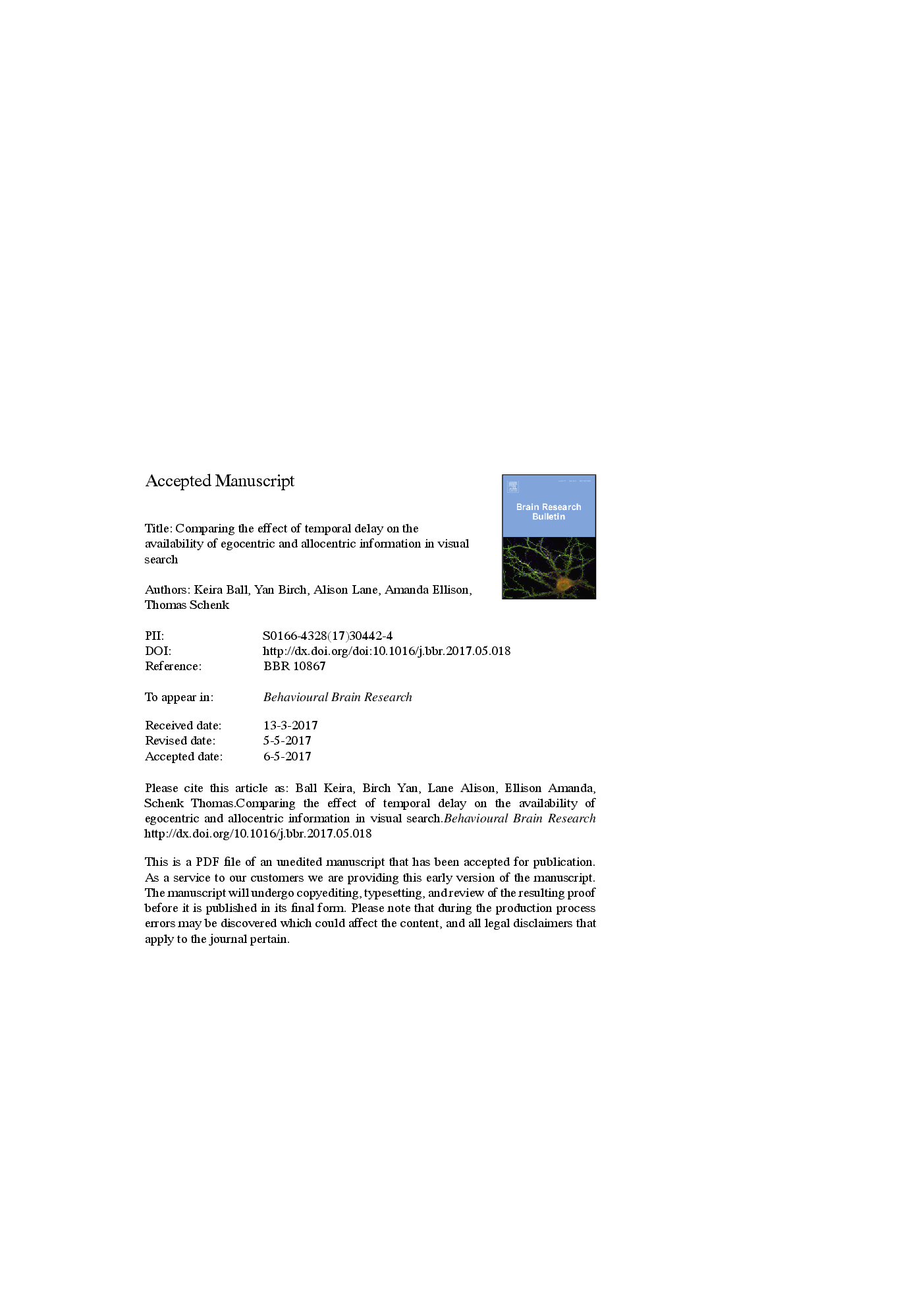ترجمه فارسی عنوان مقاله
مقایسه تأثیر تاخیر زمانی بر قابلیت دسترسی اطلاعات خودزنی و افتراق در جستجوی بصری
عنوان انگلیسی
Comparing the effect of temporal delay on the availability of egocentric and allocentric information in visual search
| کد مقاله | سال انتشار | تعداد صفحات مقاله انگلیسی |
|---|---|---|
| 143218 | 2017 | 34 صفحه PDF |
منبع

Publisher : Elsevier - Science Direct (الزویر - ساینس دایرکت)
Journal : Behavioural Brain Research, Volume 331, 28 July 2017, Pages 38-46

